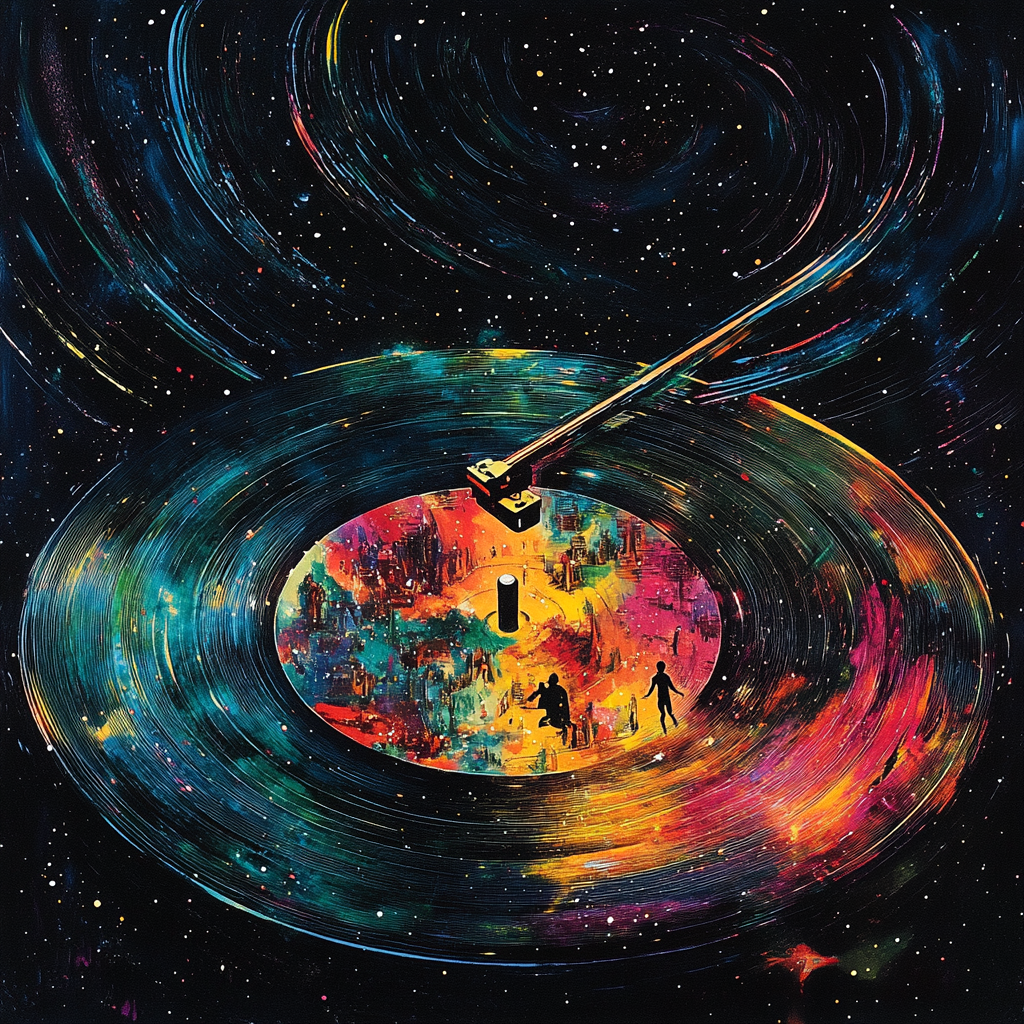Frozen in the Fires of Time: Notes from Inside the Block Universe
It’s not that time is moving too fast. It’s that it isn’t moving at all. I’m just a twitchy meat puppet, tap-dancing through a film reel that’s already been shot, edited, and boxed up in the cosmic archives. Every heartbreak, every concert, every dog I ever loved—it’s all still happening, right now, in some weird, immutable strip of spacetime spaghetti. And no, this isn’t science fiction. This isn’t some peyote-laced desert hallucination or the aftermath of too much Tool on an empty stomach. This is physics. Real-deal, chalk-on-the-blackboard, Einstein-was-here physics.
The block universe theory—the idea that past, present, and future all exist simultaneously—isn’t some fringe headtrip cooked up in a Berkeley drum circle. It’s the sober, unsettling consensus of the world’s most terrifyingly brilliant minds. Einstein believed it. So do many modern physicists, philosophers, and cosmologists who stare into the fabric of spacetime for a living. According to them, the passage of time is just an illusion—something your brain made up to keep you from screaming into the void. The truth? Everything that’s ever happened—or ever will happen—is frozen in a four-dimensional slab of reality, and you’re just one flickering flashlight scanning across it.
So precisely what in the wide, wide, world of sports is the block universe? Here’s the breakdown, no tweed jackets or MIT sheepskin required: the block universe is a physics model that says time doesn’t flow—it just is. Past, present, future? All equally real. All happening. Right now. Forever. Think of your life not as a movie you’re watching unfold, but as the entire film reel laid out on a table. Every frame, from your first cry to your last breath, locked in place. Immutable. Un-editable.
Einstein cracked this one open when he said time is just another dimension, like space. That your Tuesday morning coffee and your future deathbed monologue are just coordinates in spacetime, chilling side by side in the infinite nowhere. The math checks out. Philosophers and physicists started calling it the “block universe” because it's like a giant, four-dimensional block that contains all events—every scream, every orgasm, every time you spilled coffee on your shirt in the car—all baked into the structure of reality.
Where, then, does the idea of consciousness fit? Because if everything is already scripted, then are we just playing the same roles over and over or can we still be sentient beings, capable of free will, feelings and agency?
Let’s stick with the multimedia metaphors: Imagine your life as a vinyl record—not a playlist, not a stream, but a big, black, heavy LP with every moment you’ve ever lived etched into its grooves. Every spin of that record holds your entire existence—from your first scream in hospital to the last breath you’ll ever take, and everything in between. Every track, every bridge, every breakdown is already there, carved into spacetime.
Now picture your consciousness as the needle on the turntable. It doesn’t create the music—it just plays it. One moment at a time. Smooth, sequential. You don’t get to lift the needle and drop it on the chorus of next week’s love story. You can’t rewind to the verse where you held your dog’s face in your hands and whispered goodbye. You only hear what the needle touches. But that doesn’t mean the rest of the record doesn’t exist. It’s all there—you’re just not experiencing it yet.
Now take it up a level. The universe? That’s the DJ booth outside of time, where the whole record spins silently, perfectly, already complete. No skips. No scratches. Just the full, permanent tracklist of your life laid out in wax. You’re not composing the music. You’re just playing it.
But the version of you in the future space of the block universe already knows exactly how this turns out. That girl you’re obsessing over texting? He knows if she ghosts you, marries you, or leaves you crying in a Chipotle parking lot. That job you’re too afraid to apply for? He’s already been fired from it. Twice.
In the block universe, your future self isn’t out there waiting. He’s not some shimmering mirage you’re crawling toward. He’s already here. Watching you spiral over things he’s already survived. Or botched. Or nailed. And he’s probably laughing—not cruelly, not mockingly—but with that grim, cracked smile of someone who’s already seen the movie and knows how the third act goes down.
It’s the kind of laughter that comes from knowing the joke isn’t on you—it is you.
If every version of you—every mistake, every triumph, every awkward silence and every drunken karaoke meltdown—is already baked into the cosmic muffin, then the punchline isn’t about outcome. It’s about presence. It’s about how you’re being in this moment. Not because it changes the future, but because this moment is eternally true. You can’t rewrite the script. But you can still deliver your lines with style.
Your future self, like your past self, isn’t a stranger. He’s right here, baked into the same weird loaf of spacetime, smirking from a few slices over. He’s got blood on his shirt and dog hair on his jeans, and he’s cheering you on—not to change the ending, but to show up for your scene. Fully. Fearlessly. With your middle finger in the air and “Sabbath Bloody Sabbath” in your headphones.
And maybe that’s the whole point. You don’t get to steer the story. But you do get to scream your own name when the guitar solo kicks in.


